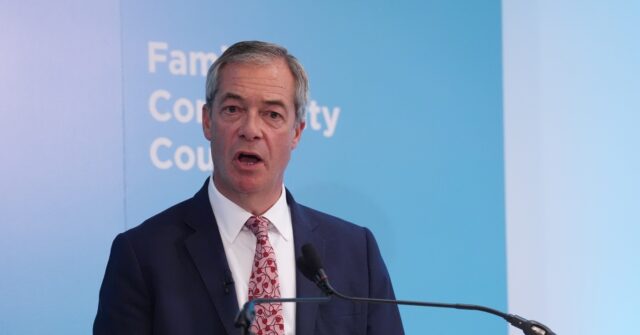Reform UK leader Nigel Farage has recently raised alarms regarding an alleged threat to his life from an “illegal migrant.” In a recent post, Farage shared a video featuring a man named Mada Pasa, who is believed to be an Afghan migrant known for his controversial social media presence. The video underlines the tensions surrounding immigration in the UK, especially given Farage’s history as a frequent target of political violence, particularly from leftist factions. Pasa’s notoriety has grown as he documents his perilous journey from France to the UK, often using aggressive postures and language that invoke intimidation.
The individual in question, Pasa, has gained fame on TikTok, attracting millions of viewers with his videos that showcase his quest to migrate into Britain illegally. A striking feature of his persona is his Kalashnikov rifle tattoo, which symbolizes his affinity for gun culture. In a video purportedly directed at Farage, Pasa mimics shooting gestures while vocalizing threats, undermining the safety and security concerns surrounding illegal immigration. His claim that he intends to come to England raises further eyebrows, particularly as Farage has frequently criticized situations involving immigrants engaging in provocative behavior.
In the video, Pasa delivers a message that blends aggression with humor, challenging Farage personally, and suggesting that they have differing views on what constitutes acceptable speech and behavior regarding immigration discussions. He sarcastically references a desire to marry Farage’s sister, perhaps as a means of further provoking the politician. Farage interpreted this as a serious threat, using social media to spotlight Pasa’s actions and voice concerns about the character of the individuals being allowed into the UK under current immigration policies.
Farage’s response has echoed a broader concern about the safety and implications of allowing certain individuals into the country, particularly amidst rising numbers of illegal crossings into the UK. With more than 13,000 migrants arriving in just the past few months, the dialogue surrounding immigration has become increasingly polarized, building a sense of urgency around the issue. Farage’s comments not only reflect his views as an ardent Brexit supporter but also position him within a larger narrative on sovereignty and governance regarding immigration in Britain.
Pasa’s background adds to the controversy; he reportedly lived in Stockholm before heading to France and is said to currently reside there. His activities are situated amid a network of migrant camps along the French coast, where people-smuggling operations are prevalent. Such environments nurture dangerous and illegal behaviors, further complicating the public perception of migrants and those who support more open immigration policies. Farage has consistently questioned whether this is indeed the kind of individual that the UK should be welcoming, suggesting that his actions highlight shortcomings in the management of the current immigration system.
As the situation unfolds, the implications extend beyond just Farage and Pasa; it taps into broader societal concerns regarding safety, the rule of law, and the efficacy of current immigration policies in the UK. As tensions rise, it is crucial to assess the individual stories behind migrants and understand the broader context surrounding their journeys, as well as the political ramifications that such incidents may generate. Farage’s warning resonates with a segment of the population that fears uncontrolled immigration may lead to security breaches, reinforcing the idea that these discussions are far from over.

